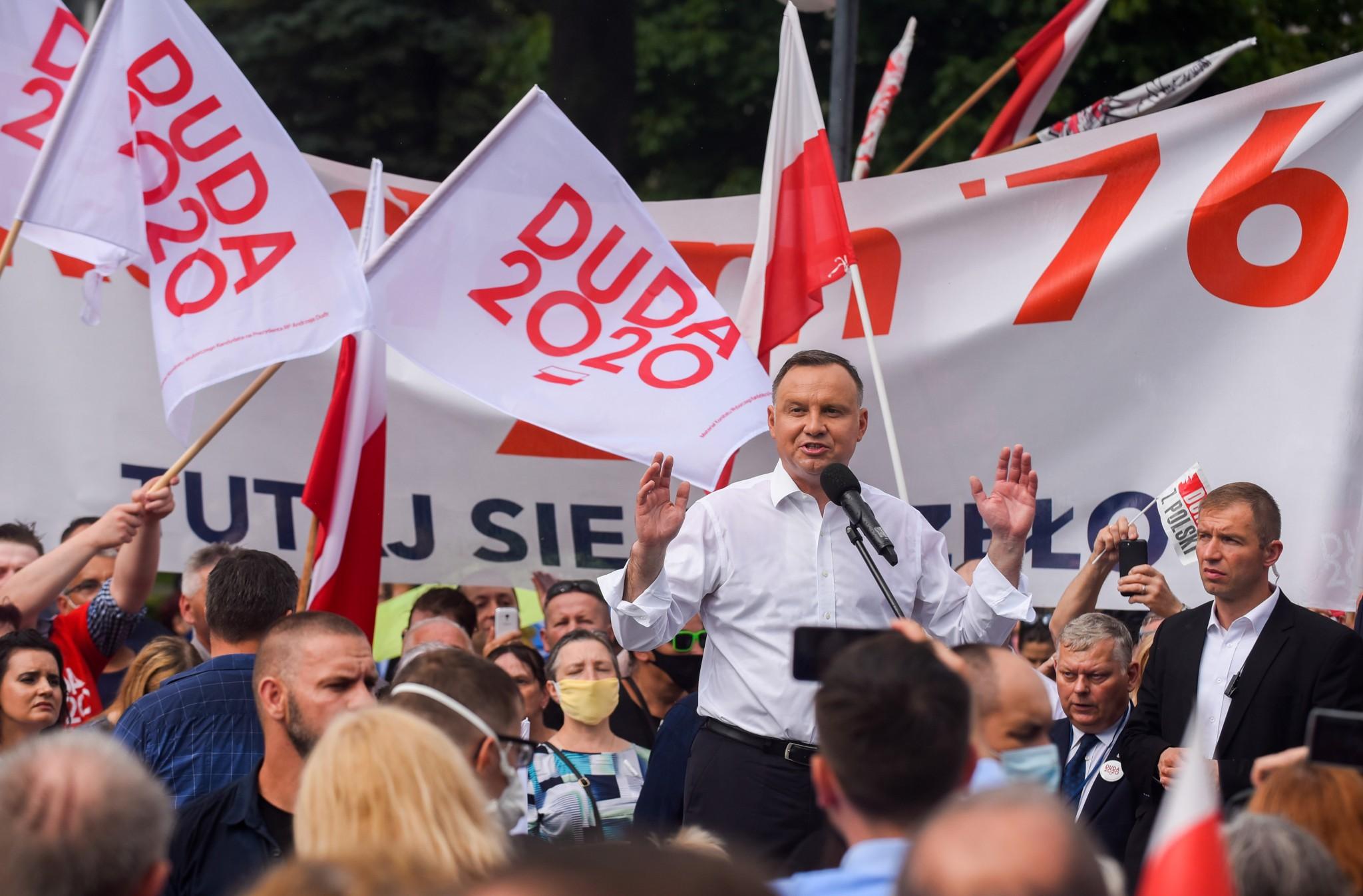Poland election proving a test for president and populism
A crowded field of 11 candidates, all men, could make it harder for anyone to reach the required 50 per cent of votes on Sunday

Your support helps us to tell the story
From reproductive rights to climate change to Big Tech, The Independent is on the ground when the story is developing. Whether it's investigating the financials of Elon Musk's pro-Trump PAC or producing our latest documentary, 'The A Word', which shines a light on the American women fighting for reproductive rights, we know how important it is to parse out the facts from the messaging.
At such a critical moment in US history, we need reporters on the ground. Your donation allows us to keep sending journalists to speak to both sides of the story.
The Independent is trusted by Americans across the entire political spectrum. And unlike many other quality news outlets, we choose not to lock Americans out of our reporting and analysis with paywalls. We believe quality journalism should be available to everyone, paid for by those who can afford it.
Your support makes all the difference.Poland’s right-wing president Andrzej Duda is fighting for a second term in an election on Sunday that will test whether he was helped by a campaign that depicted LGBT+ rights as a dangerous “ideology”, and a last-minute reception by Donald Trump at the White House.
It will be another electoral test for populist leaders in Europe amid the coronavirus pandemic.
Last weekend, Serbia’s autocratic right-wing president Aleksandar Vucic strengthened his hold on power there in a parliamentary election that was boycotted by opposition parties.
The Polish election is widely seen as an important test for democracy, in this case in the fifth most populous country in the European Union.
A crowded field of 11 candidates, all men, could make it harder for anyone to reach the required 50 per cent of votes on Sunday, in which case a run-off will be held on 12 July.
Mr Duda is backed by Law and Justice, a nationalist, conservative party that is popular with many for introducing welfare spending programmes.
Those policies have eased hardships for older Poles and others left behind in the dramatic economic transformation since communism fell in 1989.
“Poland has changed. It has changed for the better,” Mr Duda said at a rally on Friday, while promising to keep working to make sure Poles achieve western European living standards.
Mr Duda and Law and Justice, both in power since 2015, have also triggered tensions with the EU and provoked repeated street protests at home over controversial laws giving the party control over the top courts and other key judicial bodies.
The EU has strongly condemned the judicial laws as violations of democratic standards. This year the US-based group Freedom House downgraded Poland in its ranking from “consolidated democracy” to “semi-consolidated democracy.”
“The destruction of the democratic state of law is close to completion,” said Jaroslaw Kurski, the editor of the liberal daily newspaper Gazeta Wyborcza, in an appeal this week for readers to choose a democratic candidate.
“If we, citizens, democrats, do not mobilise, the next elections will be as ‘democratic’ as in Belarus, Russia or Hungary,” Mr Kurski wrote.
As he appeared to be losing support, Mr Duda seized on family values, vowing to protect Polish families from the propagation of “LGBT+ ideology” in public institutions.
The election will take place four days after Mr Duda was hosted at the White House by Mr Trump, who praised Poland for its “rule of law”.
Associated Press
Join our commenting forum
Join thought-provoking conversations, follow other Independent readers and see their replies
Comments